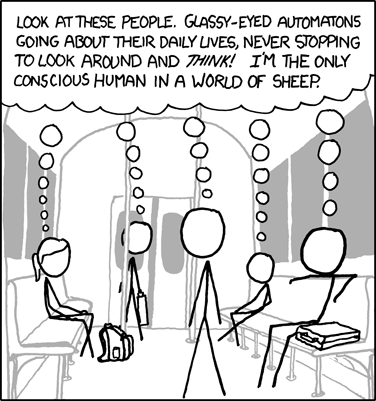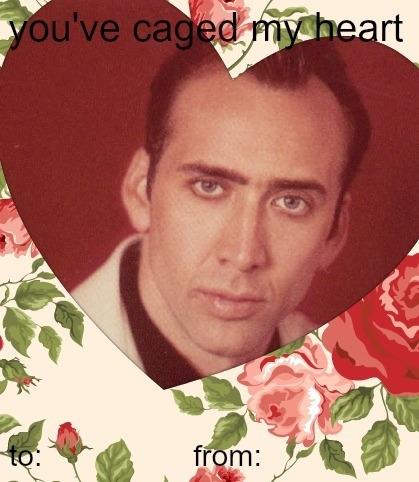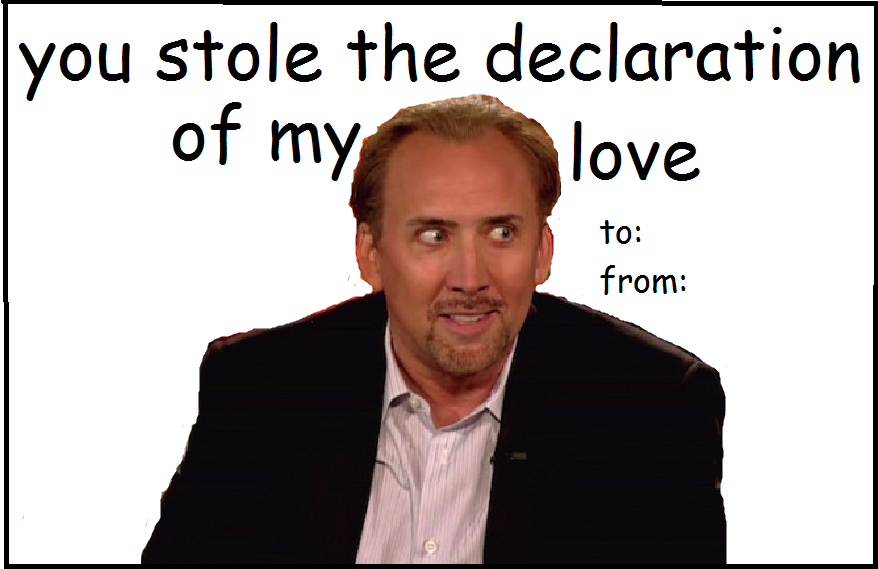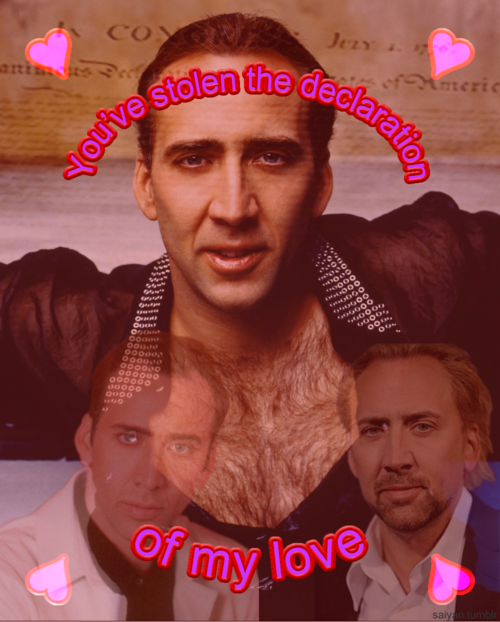Hello and welcome to the new year! This week we finally catch up with Ender again and it is just amazingly bad. Also, don't miss Erika's return to Thursday posts later this week with the prologue of Lullaby!
But my main protest here is tricky, because it's a clash of reality-versus-story, a bit like people complaining that Frodo doesn't just leap on Gwaihir's back and fly all the way to Mordor to throw the Ring into the Cracks from half a league up. The in-universe reason is that the skies of Mordor aren't safe and they'd lose all hope of stealth, which is worse than a long walk. The real reason, of course, is that the point of the story is Frodo's quest and the way it scours Middle-Earth with a reckoning against those who would choose power and domination over peace and mercy. So, if Speaker is about the chaos of surviving cultural contact when the galaxy-roaming humans of the distant future meet some low-tech incomprehensible aliens and try not to interfere, it sort of misses the point to argue that this should be side-stepped. And yet!
I feel like Card desperately wants to forget that this story is taking place three thousand years in the future. Not even just three thousand years in our future, but three thousand years from Ender's time--Ender's time in which humanity already had the technology to sculpt gravity, to create fields that shred molecules in a hungry nova, to project harmless forcefields so subtle that they could easily be confused for physical doors inside an army gymnasium in space. They can make tiny chips they clip to your spine that let them directly pick up every sensory input your body receives and how it reacts. They can transmit information instantaneously across any distance, and they know this can be done with biological systems, perfect telepathy.
I think maybe it wouldn't have been a huge stretch to build little observational drones that noiselessly hover around with anti-grav engines, maybe wrap them up in cloaking forcefields, and set them to drift through the forest just listening in. (I'm pretty sure the forcefields in Ender's Game were always completely opaque, not invisibility cloaks, but I'm only asking them for one technological advancement in three thousand years to pull this off.) Now, zero question that this would be a huge invasion of privacy, and that is not going to be morally okay with everyone. On the other hand, the option they did go with still involves tremendous risk, gets little information, has lead to two deaths in this chapter, and is guaranteed to cause some degree of the cultural contamination which supposedly everyone is completely terrified of instigating. So maybe they should rethink which is the lesser of two evils here.
Anyway. Pipo's explains "I can't tell you how they court and reproduce because, shockingly, they haven't invited us to watch them bang", flips off his antagonist with academic flair, and we draw back out to the galactic scale, where news of his death has just been ansible-broadcast across the Hundred Worlds.
Libo is ordered to cut his contact down to an eighth of its previous level and to not ask the Little Ones what happened to Pipo.
It's funny that these books and this author are seen as such a giant in the world of science fiction when it seems so often to be actively antagonistic to coherent and consistent science. I mean, sure, the SFF umbrella absolutely has room for stories with a high-tech aesthetic and all the scientific rigour of Dr Seuss, but it might be worth asking ourselves if these things would fly by without comment if, for example, the author were a woman and not the type of Jesus-and-warfare, no-homo man that Card is.
In case anyone was worried that Ender might have become a mere human in the last twenty years, the very first sentence describing him assures us that he's still the best person ever:
Andrew Wiggin, who tends not to go by 'Ender' anymore, is speaker for the dead on the ice planetHoth Trondheim in the university city of Reykjavik, built into the side of a fjord, bastion of Nordic culture. No, come back, I'm serious. The most Nordicful place in the galaxy isn't on Earth, it's a college built into a fjord on icy fjord world. It's a beautiful day in Epcot Galaxy.
Andrew/Ender is a temporary professor, overseeing a discussion among history students about whether the destruction of the Formics was necessary before humans could expand across the stars, which he knows always comes down to people hating on Ender the Xenocide, so he tries not to pay too much attention. Instead, he listens to his stud--which is to say, the ansible bluetooth gizmo "worn like a jewel in his ear"--reporting Pipo's death, and he interrupts his students to ask them about the Little Ones.
The students start disagreeing about alienness and empathy, leading Andrew/Ender to call on Plikt, the only person in the class who has read Demosthenes' latest publication, in which she defines the the 'orders of foreignness': utlannings of another city, framlings of another world, ramen of another species, and "the true alien, the varelse, which includes all the animals, for with them no conversation is possible." The other students are irritated with Plikt, and Andrew calls them out for just being ashamed that they haven't read Demosthenes' new history yet and so feeling stupid because she has. Card/Ender seem to have forgotten since last book that the smart kid who gets picked out by the teacher as Best Student just makes the resentment even worse.
I'm going to quote heavily a bit, because this is intensely bad stuff.
Plikt goes on to defend the Third Invasion:
These are the two positions we are given: either good and evil exist only in our heads and so no action of itself contains any moral weight (in which case, near as I can tell, the most 'moral' life is led by someone who never learns that other people are capable of feeling pain), or good and evil are absolutes that infect us through our actions--if you do a bad thing then you are a bad person, you should be punished, end of story, no mitigating factors, world without end amen.
It seems to me like the main purpose of both of these systems is to level judgment: to definitively declare that a person was Good or Bad. Sometime in the last decade, I lost all interest in trying to lay a final judgment on people; I tend to think more in terms of 'situation is good', 'situation can be fixed', and 'situation needs to be escaped'. Actions can be good or bad--we can see that from their harmful results--and intentions can be good or bad--we can see that by whether people care about their results. If someone causes harm with good intentions, that doesn't make their action good; it makes it salvageable. If a person wants to do good and fails, then they should be enthusiastic about understanding how they screwed up and how to not screw up in future. If a person causes harm intentionally, then the first challenge is getting them to agree that they shouldn't have done it. Both of these cases are in the 'situation can be fixed' category. If a person causes harm and doesn't care (or did so maliciously) and they can't be talked out of it, then we end up in the 'situation needs to be escaped' category.
Intentions, in this framework, don't impart their morality to actions. They tell us what to do next. Judgment doesn't, of itself, make anything better. I'm mostly in favour of making things better. Judgment is a distraction. Judgment is boring, it's static, like the dead that Ender demands the right to speak for. Am I good, am I bad? Fucking yawn. I am still alive and I will use my time trying to be better.
Andrew leaves his students and starts thinking of himself as Ender again, recalling his past, giving us solid timelines at last. It is the year 1948 Starways Code, and he destroyed the formics in 1180 BSC, so 3128 years precisely since the xenocide. He's about thirty-five now, having spent the last ten years of his life skipping from world to world constantly--the math tells us he's been skipping an average of 50 years every two months, although we don't know what the average length of an interplanetary voyage is among human colonies (his first voyage was 50 years, anyway).
Hey, remember when Graff mentioned that travel from Earth to Battle School cost more money than a highly-qualified professional would make in their entire career? Apparently it's still so common than Ender never lands on a planet and finds that they're just not intending to send a ship out for the next year or so. Also, let's note that Ender has zero trouble communicating with anyone there on Trondheim, despite three thousand years of supposed linguistic evolution. It's not just that the ansible keeps a common language among the worlds; it literally keeps language static for three thousand years. But it's also super expensive to use and so transmitting new sitcoms to Lusitania is a big deal.
I hate to be a hypocrite, and I really am about improvement more than judgment, so, pro tip to aspiring novelists: don't do these things, because they suck and you can do better. You can handwave. Ender's apparently got the internet in his brain; use those three thousand years of advanced technology to say that someone invented neural interfaces that rapidly update language centres of the brain in order to help address these exact sorts of time-dilation issues. (Hell, the ownership of that kind of software practically begs to be the centre of its own sci fi story--they who control the evolution of language control the fate of humanity.)
Plikt follows Ender after class; she keeps up with the news and she has realised that Ender had to have got the report of Pipo's death in the middle of class, which means he's got ansible priority, which is a big deal. She's also tried to investigate him and found that "Everything's classified. Classified so deep that I can't even find out what the access level is. God himself couldn't look up your life story." Subtle, Ender. Maybe just make up a fake name and say you're from South Carolina? That seems easier.
Plikt wants to be a Speaker too, and aspires to one day speak for Ender, which means understanding his story first, but Ender's having none of it, and as he escapes her she shouts that she knows he's going to Lusitania, although there hasn't been any request for him to go yet. There's some standard-issue 'I don't care about anyone or owe anyone anything', with the exception of the last hive queen, though she's not named. Normal foreshadowy stuff, so angst, much ominous.
Next week: Novinha derails her life's work and vital science in a fit of passion over her boyfriend.
(And again, do not miss the blogqueen's triumphant return with Lullaby this Thursday!)
Speaker for the Dead: p. 31--40
Chapter Two: Trondheim
The opening letter for this chapter is from Pipo (full name turns out to be João Figueira Alvarez) to some ridiculous straw professor at the University of Sicily who apparently tried to have Pipo censured for failing to provide sufficient information about how the Little Ones reproduce.
When would-be xenologers complain that I am not getting the right sort of data from my observations of the pequeninos, I always urge them to reread the limitations placed upon me by law. I am permitted to bring no more than one assistant on field visits; I may not ask questions that might reveal human expectations, lest they try to imitate us; I may not volunteer information to elicit a parallel response; I may not stay with them more than four hours at a time; except for my clothing, I may not use any products of technology in their presence, which includes cameras, recorders, computers, or even a manufactured pen to write on manufactured paper; I may not even observe them unawares.The specification of 'manufactured' is kind of interesting to me, since it seems to imply that if he were able to craft some kind of makeshift pen and paper those would be allowed. Surely the greater concern is that they not introduce written language if the Little Ones have no such concept?
But my main protest here is tricky, because it's a clash of reality-versus-story, a bit like people complaining that Frodo doesn't just leap on Gwaihir's back and fly all the way to Mordor to throw the Ring into the Cracks from half a league up. The in-universe reason is that the skies of Mordor aren't safe and they'd lose all hope of stealth, which is worse than a long walk. The real reason, of course, is that the point of the story is Frodo's quest and the way it scours Middle-Earth with a reckoning against those who would choose power and domination over peace and mercy. So, if Speaker is about the chaos of surviving cultural contact when the galaxy-roaming humans of the distant future meet some low-tech incomprehensible aliens and try not to interfere, it sort of misses the point to argue that this should be side-stepped. And yet!
I feel like Card desperately wants to forget that this story is taking place three thousand years in the future. Not even just three thousand years in our future, but three thousand years from Ender's time--Ender's time in which humanity already had the technology to sculpt gravity, to create fields that shred molecules in a hungry nova, to project harmless forcefields so subtle that they could easily be confused for physical doors inside an army gymnasium in space. They can make tiny chips they clip to your spine that let them directly pick up every sensory input your body receives and how it reacts. They can transmit information instantaneously across any distance, and they know this can be done with biological systems, perfect telepathy.
I think maybe it wouldn't have been a huge stretch to build little observational drones that noiselessly hover around with anti-grav engines, maybe wrap them up in cloaking forcefields, and set them to drift through the forest just listening in. (I'm pretty sure the forcefields in Ender's Game were always completely opaque, not invisibility cloaks, but I'm only asking them for one technological advancement in three thousand years to pull this off.) Now, zero question that this would be a huge invasion of privacy, and that is not going to be morally okay with everyone. On the other hand, the option they did go with still involves tremendous risk, gets little information, has lead to two deaths in this chapter, and is guaranteed to cause some degree of the cultural contamination which supposedly everyone is completely terrified of instigating. So maybe they should rethink which is the lesser of two evils here.
Anyway. Pipo's explains "I can't tell you how they court and reproduce because, shockingly, they haven't invited us to watch them bang", flips off his antagonist with academic flair, and we draw back out to the galactic scale, where news of his death has just been ansible-broadcast across the Hundred Worlds.
Within hours, scholars, scientists, politicians, and journalists began to strike their poses. A consensus soon emerged. One incident, under baffling circumstances, does not prove the failure of Starways Council policy toward the piggies. On the contrary, the fact that only one man died seems to prove the wisdom of the present policy of near inaction. We should, therefore, do nothing except continue to observe at a slightly less intense pace.I know Card means this as an indictment of this idea, if only because he's talking about the herd-agreement of eggheads, tyrants, and muckrakers trying to look good, rather than the reasoned conclusions of a single pure genius in a sealed box who has never met another living being. That's where you get the good stuff.
Libo is ordered to cut his contact down to an eighth of its previous level and to not ask the Little Ones what happened to Pipo.
There was also much concern about the morale of the people of Lusitania. They were sent many new entertainment programs by ansible, despite the expense, to help take their minds off the grisly murder. And then, having doe the little that could be done by framlings, who were, after all, lightyears away from Lusitania, the people of the Hundred Worlds returned to their local concerns.Some standard issue panem et circenses criticism of the galaxy, boring--the interesting thing here to me is that this implies ansible broadcast is actually incredibly expensive. Here I've been assuming that everyone had access to the galactic internet all the time at minimal cost. We've been told, after all, that it's the pervasive influence of the ansible that keeps all of the Hundred Worlds speaking the same languages--Pipo and Libo upload their findings to the galaxy every single day--yet sending them a Netflix update is an expense out of the ordinary? They have to file a special requisition explaining their dire need for sitcoms?
It's funny that these books and this author are seen as such a giant in the world of science fiction when it seems so often to be actively antagonistic to coherent and consistent science. I mean, sure, the SFF umbrella absolutely has room for stories with a high-tech aesthetic and all the scientific rigour of Dr Seuss, but it might be worth asking ourselves if these things would fly by without comment if, for example, the author were a woman and not the type of Jesus-and-warfare, no-homo man that Card is.
In case anyone was worried that Ender might have become a mere human in the last twenty years, the very first sentence describing him assures us that he's still the best person ever:
Outside Lusitania, only one man among the half-trillion human beings in the Hundred Worlds felt the death of João Figueira Alvarez, called Pipo, as a great change in the shape of his own life.Only Ender feels any personal impact from Pipo's death. No student of xenology who followed his writings with the faith of a disciple and dreamed of making first contact one day, no desperately compassionate person who feels the pain across the millennia of the xenocide of the formics and fearful of interspecies violence, no one anywhere else in the galaxy feels that their life has been changed by the apparent brutal murder of Pipo Alvarez except Ender. Sigh.
Andrew Wiggin, who tends not to go by 'Ender' anymore, is speaker for the dead on the ice planet
Andrew/Ender is a temporary professor, overseeing a discussion among history students about whether the destruction of the Formics was necessary before humans could expand across the stars, which he knows always comes down to people hating on Ender the Xenocide, so he tries not to pay too much attention. Instead, he listens to his stud--which is to say, the ansible bluetooth gizmo "worn like a jewel in his ear"--reporting Pipo's death, and he interrupts his students to ask them about the Little Ones.
"They are our only hope of redemption," said one, who took Calvin rather more seriously than Luther.Card just doesn't care that three thousand years have passed, apparently. The theologies of Calvin and Luther are still a huge deal to these university students, rather than any other authors who might have made some contributions to concepts of theodicy and salvation. They aren't even Nordic theologists! (I suppose John Calvin did flee to Switzerland before publishing his big stuff, but that doesn't change the fact that Card appears to mostly have wanted to set this book last week, a few blocks from his house. I wouldn't even know what the hell these people are talking about if I hadn't been reading Fred Clark for the last six years. Shorthand: they disagreed a bit on the degree to which salvation from hell was flexible or predetermined.)
The students start disagreeing about alienness and empathy, leading Andrew/Ender to call on Plikt, the only person in the class who has read Demosthenes' latest publication, in which she defines the the 'orders of foreignness': utlannings of another city, framlings of another world, ramen of another species, and "the true alien, the varelse, which includes all the animals, for with them no conversation is possible." The other students are irritated with Plikt, and Andrew calls them out for just being ashamed that they haven't read Demosthenes' new history yet and so feeling stupid because she has. Card/Ender seem to have forgotten since last book that the smart kid who gets picked out by the teacher as Best Student just makes the resentment even worse.
I'm going to quote heavily a bit, because this is intensely bad stuff.
Plikt goes on to defend the Third Invasion:
"...Ender was not a true xenocide, for when he destroyed the buggers, we knew them only as varelse; it was not until years later, when the original Speaker for the Dead wrote the Hive Queen and the Hegemon, that humankind first understood that the buggers were not varelse at all, but ramen."Another student contradicts her, declaring that 'dead is dead'.
Andrew sighed at Styrka's unforgiving attitude; it was the fashion among Calvinists at Reykjavik to deny any weight to human motive in judging the good or evil of an act. [...] Because Speakers for the Dead held as their only doctrine that good or evil exist entirely in human motive, and not at all in the act, it made students like Styrka quite hostile to Andrew. Fortunately, Andrew did not resent it--he understood the motive behind it.I imagine that all y'all have read Kinsey Hope's essay on Magical Intent. But in this case, it's not even Ender's philosophy that bothers me so much--it's far from the first time Ender would be howlingly wrong--but that the opposition is such a hilarious straw philosophy:
"This talk of varelse and raman is nonsense. If the piggies murder, then they are evil, as the buggers were evil. If the act is evil, then the actor is evil."
Andrew nodded. "There is our dilemma. There is the problem. Was the act evil, or was it, somehow, to the piggies' understanding at least, good? Are the piggies raman or varelse? For the moment, Styrka, hold your tongue. I know all the arguments of your Calvinism, but even John Calvin would call your doctrine stupid."
"How do you know what Calvin would--"
"Because he's dead," roared Andrew, "and so I'm entitled to speak for him!"Oh my god. Ender has grown up from being the isolated resentful smart kid's validation fantasy and become the smart kid's fantasy of what it would be like to be a teacher. At last he has the authority to shout down the stupid students. (He reflects that Styrka is smart enough that he will drop his philosophy before he graduates, which I suppose is a form of twisted praise.)
These are the two positions we are given: either good and evil exist only in our heads and so no action of itself contains any moral weight (in which case, near as I can tell, the most 'moral' life is led by someone who never learns that other people are capable of feeling pain), or good and evil are absolutes that infect us through our actions--if you do a bad thing then you are a bad person, you should be punished, end of story, no mitigating factors, world without end amen.
It seems to me like the main purpose of both of these systems is to level judgment: to definitively declare that a person was Good or Bad. Sometime in the last decade, I lost all interest in trying to lay a final judgment on people; I tend to think more in terms of 'situation is good', 'situation can be fixed', and 'situation needs to be escaped'. Actions can be good or bad--we can see that from their harmful results--and intentions can be good or bad--we can see that by whether people care about their results. If someone causes harm with good intentions, that doesn't make their action good; it makes it salvageable. If a person wants to do good and fails, then they should be enthusiastic about understanding how they screwed up and how to not screw up in future. If a person causes harm intentionally, then the first challenge is getting them to agree that they shouldn't have done it. Both of these cases are in the 'situation can be fixed' category. If a person causes harm and doesn't care (or did so maliciously) and they can't be talked out of it, then we end up in the 'situation needs to be escaped' category.
Intentions, in this framework, don't impart their morality to actions. They tell us what to do next. Judgment doesn't, of itself, make anything better. I'm mostly in favour of making things better. Judgment is a distraction. Judgment is boring, it's static, like the dead that Ender demands the right to speak for. Am I good, am I bad? Fucking yawn. I am still alive and I will use my time trying to be better.
Andrew leaves his students and starts thinking of himself as Ender again, recalling his past, giving us solid timelines at last. It is the year 1948 Starways Code, and he destroyed the formics in 1180 BSC, so 3128 years precisely since the xenocide. He's about thirty-five now, having spent the last ten years of his life skipping from world to world constantly--the math tells us he's been skipping an average of 50 years every two months, although we don't know what the average length of an interplanetary voyage is among human colonies (his first voyage was 50 years, anyway).
Hey, remember when Graff mentioned that travel from Earth to Battle School cost more money than a highly-qualified professional would make in their entire career? Apparently it's still so common than Ender never lands on a planet and finds that they're just not intending to send a ship out for the next year or so. Also, let's note that Ender has zero trouble communicating with anyone there on Trondheim, despite three thousand years of supposed linguistic evolution. It's not just that the ansible keeps a common language among the worlds; it literally keeps language static for three thousand years. But it's also super expensive to use and so transmitting new sitcoms to Lusitania is a big deal.
I hate to be a hypocrite, and I really am about improvement more than judgment, so, pro tip to aspiring novelists: don't do these things, because they suck and you can do better. You can handwave. Ender's apparently got the internet in his brain; use those three thousand years of advanced technology to say that someone invented neural interfaces that rapidly update language centres of the brain in order to help address these exact sorts of time-dilation issues. (Hell, the ownership of that kind of software practically begs to be the centre of its own sci fi story--they who control the evolution of language control the fate of humanity.)
Plikt follows Ender after class; she keeps up with the news and she has realised that Ender had to have got the report of Pipo's death in the middle of class, which means he's got ansible priority, which is a big deal. She's also tried to investigate him and found that "Everything's classified. Classified so deep that I can't even find out what the access level is. God himself couldn't look up your life story." Subtle, Ender. Maybe just make up a fake name and say you're from South Carolina? That seems easier.
Plikt wants to be a Speaker too, and aspires to one day speak for Ender, which means understanding his story first, but Ender's having none of it, and as he escapes her she shouts that she knows he's going to Lusitania, although there hasn't been any request for him to go yet. There's some standard-issue 'I don't care about anyone or owe anyone anything', with the exception of the last hive queen, though she's not named. Normal foreshadowy stuff, so angst, much ominous.
Next week: Novinha derails her life's work and vital science in a fit of passion over her boyfriend.
(And again, do not miss the blogqueen's triumphant return with Lullaby this Thursday!)










